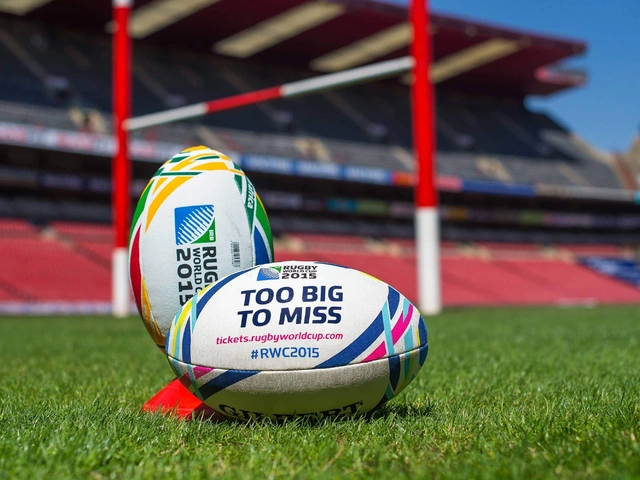Football and Rugby: A Quick Guide for Fans
If you love fast‑moving, hard‑hitting sports, you’ve probably wondered how football and rugby stack up. Both involve big players, strategic plays, and a lot of running, but the details differ enough to spark endless debate. Below you’ll find the most common questions answered in plain language, so you can decide which game clicks with you.
American Football vs Rugby: The Core Differences
First off, the ball shape looks similar, but the way it’s used changes everything. In American football, the play stops after each down, giving teams a chance to regroup and call new tactics. Rugby, on the other hand, never really stops – the ball stays in play, and the action flows from tackle to tackle. That continuous motion makes rugby feel like a marathon of short bursts, while football feels like a series of sprint‑and‑pause moments.
Equipment is another big gap. NFL players wear helmets, shoulder pads, and a lot of protective gear. Rugby players only have a mouthguard and sometimes light padding. The lighter gear in rugby means players rely more on technique and positioning to avoid injury, whereas football leans heavily on the protective gear to absorb hits.
Scoring also varies. A touchdown in football nets six points plus a chance for an extra point, while a try in rugby earns five points and a conversion kick adds two. The ways you can rack up points influence how teams plan their attacks – football often goes for big, high‑risk plays, whereas rugby builds its score through steady phases and quick ball recycling.
Speed, Training, and Athleticism
People love to argue whether NFL players are faster than rugby players. The truth is, each sport trains speed differently. NFL athletes focus on explosive bursts – think 40‑yard dash times measured in fractions of a second. Rugby players train to maintain a high pace for 80 minutes, mixing short sprints with endurance runs. Both groups are incredibly fast, but the context changes the skill set.
Training routines reflect these goals. NFL workouts often center on short, high‑intensity drills, heavy weight lifting, and specialized position work. Rugby sessions blend interval runs, agility ladders, and functional strength exercises that mimic real‑game movement. If you’re looking to get fit for rugby, start with running intervals, core work, and leg drills; if football is your aim, add explosive power lifts and sprint drills.
Another point fans ask about is history. Rugby actually predates American football by several decades. The sport emerged in early‑19th‑century England, while American football took shape later that same century, borrowing heavily from rugby rules and soccer. Understanding this timeline helps explain why many football strategies feel like a tweaked version of rugby fundamentals.
Finally, the fan experience differs. Football games have a lot of commercial breaks, halftime shows, and often a louder stadium atmosphere due to the music and fan chants. Rugby matches flow with fewer interruptions, letting the crowd stay immersed in the play. If you prefer constant action with fewer pauses, rugby might be your vibe. If you enjoy the spectacle and strategic pauses, football could be more your style.
Whichever sport you gravitate toward, both offer excitement, athleticism, and a community of passionate fans. Use the points above to decide which game feels right for you, or even try both – many athletes switch between the two at amateur levels because the core skills translate well. Enjoy the debate, watch a few matches, and you’ll soon know which side of the field you belong on.

Did football come from rugby?
Football, popularly known as soccer, has long been considered to have evolved from the English game of rugby. The two sports have many similarities, such as the basic rules of play and the shape of the ball. The main difference between the two is that rugby allows players to pass the ball backwards, while in football the ball must be passed forwards. It is believed that football was developed from rugby in the 19th century by English schoolboys who wanted to create a less physical game. The Football Association, which was founded in 1863, established the first set of rules for football, which differed from rugby's rules. Since then, football has evolved into the most popular sport in the world.
Feb 16 2023




